From classic consumer goods such as food, spirits, clothing, shoes, lamps and fairy lights to car rims. Almost everything is copied. Reckless free riders or even product and brand pirates who illegally copy products, imitate designs and infringe trademarks and patents are one side of the coin. They harm the rights holders, the original manufacturers, often the environment and can even endanger human lives. For example, when a counterfeit car rim cannot withstand the strain.
On the other hand, not every product imitation - not every lookalike or copycat product - is illegal. Even reputable market players deliberately sail close to the wind: they use legal leeway when they sell products that are reminiscent of existing products in their design.
Numerous court decisions deal with the question of whether a product or its packaging complies with the required distance to a competitor product. Knowing the case law and preparing the case as carefully as possible is essential for success in the courtroom in lookalike disputes. In short, lookalike disputes are a matter for specialists.
REGISTERED INTELLECTUAL PROPERTY RIGHTS
What can original manufacturers do to protect their products and packaging? They should have their products or packaging protected by suitable rights as early as possible - before the product is launched. Possible options include designs, community designs and trademarks. It is important to avoid potential pitfalls.
PITFALLS - CAUTION IN DESIGN LAW
When protecting their products as designs or community designs, companies must ensure that the designs are not shown to the public (long) before the application is filed. The sporting goods manufacturer Puma, for example, had a rude awakening. A community design for sports shoes registered for Puma was declared invalid by the European Trade Mark Office at the request of a competitor. The European General Court confirmed the Office's decision (Case T 647/22, not yet final). The reason for the annulment were Instagram posts published on the occasion of the appointment of the well-known singer and actress Rihanna as Puma's new creative director. The posts revealed that the world-famous singer had already worn similar sneakers two years before the community design application was filed. This meant that the designs no longer had the required individual character at the time of filing. The following insert from the decision shows the publication and the IP right prevented as a result.
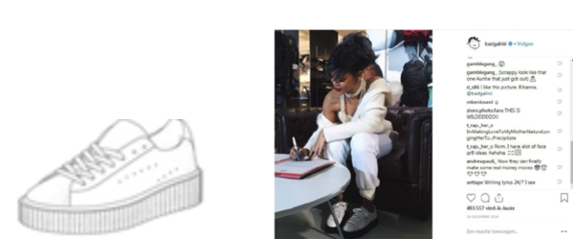
PROTECTION WITHOUT REGISTRATION
Product and packaging designs can also be protected without registration, for example by unregistered Community designs, which are protected for a period of three years from publication in the EU (Art. 11 CDR).
Copyright can also prove to be a sharp sword. Here, the question often arises as to whether the work has the required level of creativity under copyright law. Due to the judicial scope of assessment when deciding on the level of creativity, it is not uncommon for divergent decisions to be made in copyright law in comparable situations, as the current court disputes over Birkenstock sandals clearly show. The Cologne Higher Regional Court denies copyright protection for the Birkenstock sandal models “Arizona” and “Gizeh” shown below from the decision (judgment of January 26, 2024 - 6 U 89/23):
Birkenstock sandals (Arizona and Gizeh) Challenged sandals
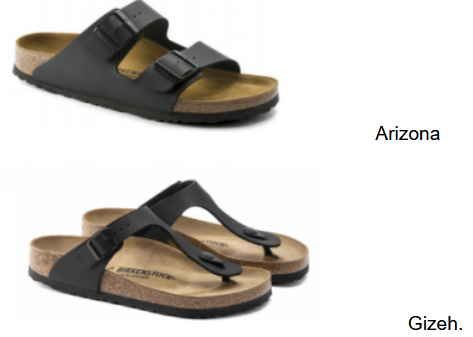
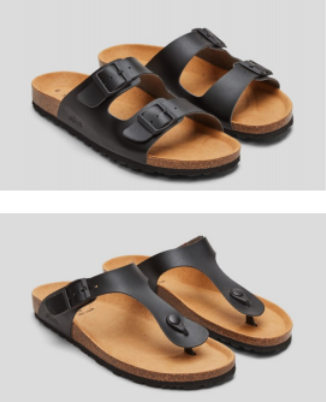
In contrast, the Higher Regional Court of Hamburg has affirmed the copyright protection of the “Madrid” sandal model (decision of October 14, 2021 - 5 W 40/21):
Birkenstock sandal (Madrid) Sandals under attack

The Federal Court of Justice will provide clarity here. The Cologne proceedings are pending there under case number I ZR 18/24.
Many years of legal experience, knowledge of case law and the appropriate courts for a lawsuit are essential for the enforcement of copyrights. For companies, it is crucial to ensure that the individual development steps and the persons involved are documented as completely as possible and early at the product development stage in order to be able to take effective action against imitators in the event of a dispute.
PRODUCT PROTECTION THROUGH UNFAIR COMPETITION LAW
In addition to intellectual property rights and copyrights, there is another possibility in the fight against imitators and lookalikes in Germany: the unfair competition act (UWG). Due to the principle of freedom of imitation, the UWG does not provide any general protection against imitations. Unfair conduct on the part of the competitor is always required for protection under unfair competition law against the imitation of a competitively unique product. The unfair competition act does not provide for general protection of innovations against imitations (Higher Regional Court of Frankfurt am Main, judgment of February 1, 2024 - 6 U 212/22).
If an imitation creates an avoidable confusion of origin with the original product or exploits the good reputation of the original, this is generally unfair. Here too, knowledge of the case law is essential, as the following case law shows:
- If the original and an imitation are of the same quality and are offered in the same high-priced market segment, this can speak against unfairness (Federal Court of Justice, judgment of September 22, 2021 - I ZR 192/20: Distribution of electric guitars, see Abrar, GRUR-Prax 2022, 185).
- If, on the other hand, the imitation is offered at a significantly lower price than the high-quality and well-established original product, this can be an argument against the imitator (Federal Court of Justice, judgment of November 8, 1984 - I ZR 128/82: Distribution of an imitation of a well-known Rolex watch model by Tchibo, at a fraction of the original price).
Different manufacturer and product names can also speak against a deception of origin and exploitation of reputation if the imitation is not identical to the original. The Cologne Higher Regional Court ruled that the design of the Albi fruit juice bottle does not infringe any rights to the Granini bottle (judgment of July 5, 2024, 6 U 131/23).
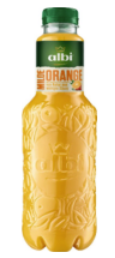
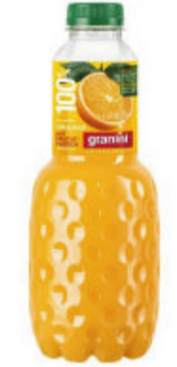
Special features may apply in the case of trademarks on an imitation product: If a name affixed to the imitation is perceived as a private label, for example as a discounter's own brand (which was not the case in the Granini legal dispute described above), case law suggests that, at least in the food sector, deception of origin and exploitation of reputation may be possible even if the names on the opposing products or packaging differ.
Against this background, the question regularly arises in the courtroom as to what the consumer, who recognizes a designation on a product, sees in it. Does the consumer see a manufacturer's trademark, a manufacturer's designation, a product designation or a trademark (see Abrar, GRUR-Prax 2024, 79)? The question as to whether the public attributes an origin-referencing function to a designation can be decisive for the outcome of the legal dispute. The use of a name as a trademark in the sense of trademark law on a counterfeit product does not automatically mean that the consumer is not misled about the origin by the lookalike. According to a new decision by the Cologne Higher Regional Court, the imprint “Hensslers Garten Glück” on a counterfeit smoothie bottle does not avoid a deception of origin if the public is guided by the design of the original bottle, which has been on the market for years and has a strong presence, and is used to the fact that the manufacturer of the original has already cooperated with well-known advertising media (judgment of July 12, 2024 - 6 U 155/23).
PRACTICAL TIP
Original manufacturers can increase their chances of success in legal proceedings against unwelcome imitators if they do their “homework” and can prove that their original product has been or is being distributed in Germany to a relevant extent. We help you to be prepared and tell you what information and evidence must be documented and archived so that there are no nasty surprises in the courtroom.
On the other hand, companies that have to defend themselves against unjustified accusations of counterfeiting need lawyers with detective skills. Especially in the case of attacks, it is important to quickly investigate whether an attacker's intellectual property right can be removed or whether the scope of protection of a product under competition law can be called into question with convincing arguments.


